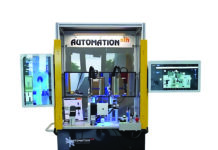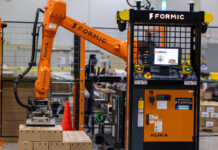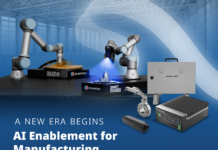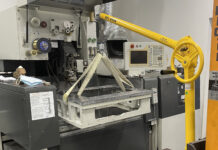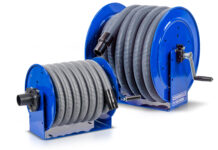Simply put, we live in a digital world, both in our personal lives and on the job. In manufacturing today, challenges abound. Customization, fast-changing business and technology environments, workforce utilization and talent pool concerns, plus the seemingly ever-present disruptive business climate, now combine to present manufacturers of all types and all sizes with concerns.
Among the proactive players, this situation is meeting with unmatched technology advancements to drive innovation much faster and on a truly global scale. Companies need to adapt their business models for sustainability and what is often called future-proofing, though that concept is another article entirely.
Changing demands in the market require a rethinking about the utilization of all resources in a company. Yet, a recent study found that 86% of all companies often avoid critical projects due to legacy systems. Think about that for a minute. Moreover, 45% of companies of all sizes did not know where or how to begin the IoT process or, as we call it, the path towards digitalization. This is not some fantasy yellow brick road, it is a journey of critical importance to the survival, let alone prosperity, of a company today. Lastly, the study found that over 40% of companies say they cannot find suitable partners with whom to begin transitioning to a digital map.
At Siemens, we believe it necessary for a company to have a goal of developing an eco-system that is easy to use, flexible and open to allowing the integration of suitable partners who bring skillsets and technology to our suite of products, software and services. The same is true for your company.
In assessing your present business condition, it is critical to determine the following for your hardware and software. Is it modular? Are the cloud connections and edge technology onboard your machines sufficient? Is there adequate API on your standard applications? Are your systems open to connecting with third-party resources and specialized hardware products? Can you, using on-staff personnel or outside integrators, build a sufficient portfolio of products to connect the real and virtual worlds, spanning IT and OT? Finally, and perhaps most important, are your systems fully web deployable? If you’re now asking yourself what you just read, find a partner and do it today.
Before addressing some of the available solutions, consider this reality from the consumer world. The customization of mass-produced products, from automobiles to Apple watches and perfume, means that those of us in the industrial space must be cognizant of consumer needs and buying habits. Driven by digitalization and the commercialization of the IoT space, manufacturers all along the supply chain need to bridge the gap from business to the consumer to bring original equipment of all types to their customers, using effective digital tools. This will be, in the very near future, the “holy grail” of digitalization and an absolute essential for companies to remain competitive and proactively aggressive in their markets. These rapidly evolving consumer tastes and demands for more variety in their product selections are already modifying how manufacturers are adapting and changing their approaches to design, manufacturing, production, distribution and, very key, the integration of customer feedback into all these facets of company operation.
From a financial perspective, it is interesting to note that since the year 2000, the top ten cap value companies are all platform providers. This new reality in business is a direct result of digitalization’s impact on the manufacturing of every product we buy in the marketplace, both for ourselves and our companies — a new day indeed.
Many of these top companies actually reside in the cloud, connecting products to consumers.
 Our newest platform, Siemens Xcelerator, for example, connects suppliers to users in the manufacturing world in three ways. Easy availability is provided for our own software services or those curated by third-party partners. Next, a transitional and ever-evolving eco-system of partners, VARs and those third-party partners is resident in a cloud-based platform. Finally, the entire unified loop of hardware, software and services is transactional to permit ongoing and uninterrupted commerce.
Our newest platform, Siemens Xcelerator, for example, connects suppliers to users in the manufacturing world in three ways. Easy availability is provided for our own software services or those curated by third-party partners. Next, a transitional and ever-evolving eco-system of partners, VARs and those third-party partners is resident in a cloud-based platform. Finally, the entire unified loop of hardware, software and services is transactional to permit ongoing and uninterrupted commerce.
As a quick example of three services we’ve developed in this space, the hybrid Industrial Edge for Machine Tools application Analyze MyMachine enables users to generate a machine tool’s mechanical fingerprint so that potential deviations can be identified at an early stage, machine failures prevented and machine operation optimized.
Simultaneously, Analyze MyWorkpiece is an application which enables online quality monitoring in real-time manufacturing based upon high-frequency process data from a SINUMERIK CNC. It applies statistical methods to detect process anomalies and can flag the affected workpieces as scrap candidates. In this way, 100% quality control can be achieved at lower costs.
 Analyze MyDrives provides data analytic models to reduce machine downtimes and increase the sustainability of connected systems and applications by analyzing data from SINAMICS variable frequency drives. Integrated solutions like energy efficiency create additional value by increasing its transparency and sustainability for all manufacturers.
Analyze MyDrives provides data analytic models to reduce machine downtimes and increase the sustainability of connected systems and applications by analyzing data from SINAMICS variable frequency drives. Integrated solutions like energy efficiency create additional value by increasing its transparency and sustainability for all manufacturers.
Last note, all the above pertain to you — whether the output at your company involves metal, composite or additive substrates. These are but a few examples of the currently available technology tools your shop, production facility or multi-national enterprise can utilize on your path to digitalization. Enjoy the ride.

